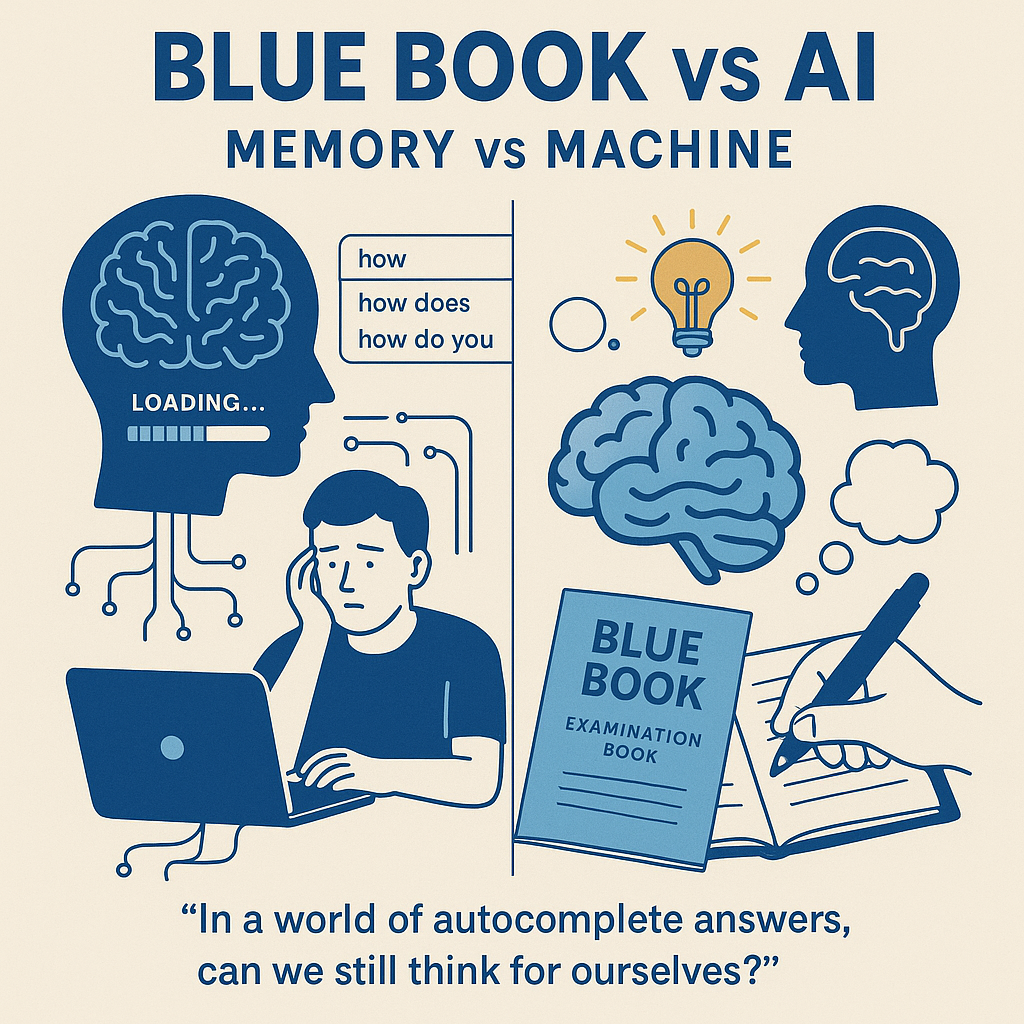
The Return of Blue Books in U.S. Colleges to Prevent AI Cheating
In the digital age, artificial intelligence (AI) tools like ChatGPT have revolutionized the educational landscape, offering students unprecedented assistance in their academic endeavors. However, this technological advancement has also introduced challenges, particularly concerning academic integrity. To address the surge in AI-assisted cheating, many U.S. colleges are reverting to traditional examination methods, notably the use of blue books. These simple, stapled booklets, once a staple in classrooms, are making a significant comeback as institutions seek effective strategies to uphold academic honesty.
Understanding Blue Books
Blue books are small, paper booklets with blue covers and lined pages, traditionally used for handwritten examinations in U.S. colleges. Introduced in the late 1920s at Butler University, they became synonymous with in-class essays and short-answer tests. Their design is straightforward, emphasizing the student’s ability to articulate thoughts without digital assistance.
The Rise of AI in Academia
The advent of AI tools has transformed how students approach assignments. Platforms like ChatGPT can generate essays, solve complex problems, and even mimic writing styles, making it tempting for students to rely on them for coursework. A study highlighted by WIRED revealed that 86% of students globally use AI regularly, blurring the lines between assistance and cheating. This widespread adoption has raised concerns among educators about the authenticity of student submissions.
Challenges with AI Detection
Detecting AI-generated content poses significant challenges. While some software claims to identify AI-written text, their accuracy is often questionable. Instances have emerged where students were falsely accused of cheating due to AI detection tools misidentifying their work. This uncertainty has led educators to seek more reliable methods to assess student understanding.
The Return to Traditional Methods
In response to these challenges, many institutions are reinstating in-person, handwritten exams using blue books. This approach ensures that students rely solely on their knowledge during assessments, minimizing the risk of AI interference. Roaring Spring Paper Products, a primary manufacturer of blue books, reported a significant surge in demand, with sales increasing by over 30% at Texas A&M University and nearly 50% at the University of Florida.
Educator Perspectives
Educators have expressed mixed feelings about the resurgence of blue books. Some, like Kevin Elliott, a lecturer at Yale University, have embraced the change, noting that handwritten exams provide a clearer insight into a student’s comprehension. Elliott observed instances where take-home essays included fabricated quotes, indicating potential AI usage. By shifting to in-class assessments, he aims to uphold academic standards.
Student Reactions
Students’ responses to the return of blue books vary. While some appreciate the emphasis on genuine understanding, others find the transition challenging, especially those accustomed to typing and using digital tools. Concerns have also been raised about the legibility of handwriting and the physical strain of writing extended essays by hand.
Balancing Technology and Integrity
While the reintroduction of blue books addresses immediate concerns about AI-assisted cheating, it also sparks a broader conversation about integrating technology into education responsibly. Some educators advocate for teaching students how to use AI tools ethically, emphasizing critical thinking and discernment. Institutions are exploring curricula that incorporate AI literacy, ensuring students can navigate the digital landscape without compromising integrity.
Conclusion
The resurgence of blue books in U.S. colleges underscores the ongoing struggle to balance technological advancements with academic honesty. As AI continues to evolve, educational institutions must adapt, finding innovative ways to uphold integrity while embracing the benefits of technology. The return to handwritten exams serves as a reminder of the importance of authentic learning and the enduring value of traditional assessment methods.